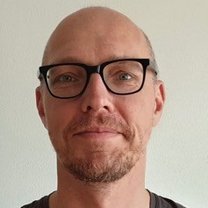The Medical Device Regulation (MDR) has been in force since 2021, which has important consequences for everyone working on healthcare innovations. The MDR Working group has been set up to support and relieve researchers in the application of the MDR legislation. This working group is supported by the 4TU.Health centre. This working group consists of representatives from the four technical universities, hospitals and universities of applied sciences. By sharing knowledge and experiences, the working group can act as an advisory body to external authorities and function as a source of information for researchers.
The MDR legislation, which entered into force on 26 May 2021, focuses on improving patient safety and clinical performance of medical devices. In addition, the legislation is more in line with the latest developments and innovations in medical science. The associated regulations form an internationally recognised regulatory framework. The MDR also has consequences for academia, in particular for those working on innovations for healthcare.
An example of the application of this legislation is software, which has since been classified as a higher risk medical device. The legislation is also relevant when research results are valorised by a spin-off, or by entering into a licensing agreement with a company. When the necessary issues are properly arranged in the research phase, the commercialisation of the results becomes more attractive and it is easier to enter the market.
Learning from each other
Peter Oosterhoff, MedTech quality assurance & regulatory affairs expert at the University of Twente: ‘Since the introduction of the MDR, a lot has come our way. By sharing knowledge and experiences within the MDR Working Group, we learn from each other. The four technical universities play an equal role within the working group. One participant in the working group has relevant background knowledge, the other has valuable network contacts – in this way, we complement each other optimally. Correctly interpreting the legislation sometimes requires quite a bit of thinking. By discussing current practical cases together, we ensure a clear interpretation of the legislation, which we can then relay back. This enables us to fulfil an advisory role towards external authorities. For example, our working group can also think along with policymakers from the Ministry of Health, Welfare and Sport.’
Helpdesk for researchers
Within each university, a designated contact person fulfils the role of helpdesk for researchers. The MDR requires a different way of working. Peter: ‘Our central question is: how can we relieve and support researchers in this process? We focus on information, training and knowledge sharing. Researchers are increasingly able to find us, although this sometimes happens late in the work process. We hope that they will approach us earlier. The sooner they come, the better we can provide them with advice. This ensures that their follow-up process runs more smoothly, because they make the right choices from the start.’
Future plans
The MDR working group wants to continue to work on making the application of the legislation as simple as possible. That is why the working group is collaborating on the development of a simple quality system for researchers. In addition, it remains valuable to maintain the working group, so that we can continue to share experiences and learn from each other. Peter: 'New AI legislation has recently come our way from the European Union. We will now have to rediscover how we as technical universities can best relate to these new developments.'
More information
Peter Oosterhoff, University of Twente: p.oosterhoff (at) utwente.nl
Susan Hommerson, Eindhoven University of Technology: s.m.hommerson (at) tue.nl
Patrick González, Vrije Universiteit Amsterdam: p.j.gonzalez (at) vu.nl
